On Air Now
The Smooth Late Show with Martin Collins 10pm - 1am
14 July 2022, 09:22 | Updated: 14 July 2022, 12:14
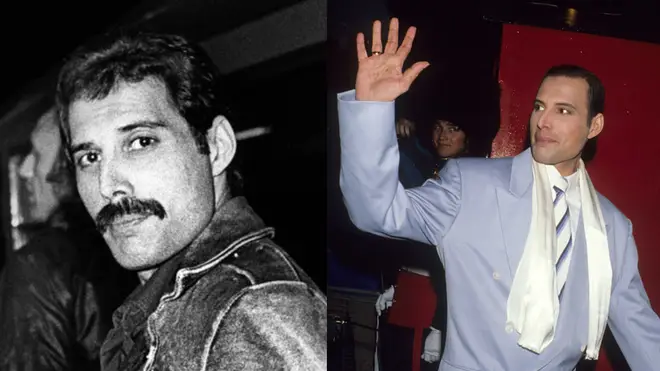
Freddie Mercury's close friend and personal assistant of twelve years, Peter "Phoebe" Freestone, recalls Freddie Mercury's last days, his shocking AIDS diagnosis and Freddie's determination to die "on his own terms".
By Freddie Mercury's side throughout the rollercoaster ride of his career, Peter Freestone lived with the singer in his Kensington home, Garden Lodge, and was with him throughout his battle with AIDS and the last days of the singer's life.
Peter, who is a close friend of the remaining band members of Queen - and was an official on-set advisor for the Oscar-winning film Bohemian Rhapsody - speaks candidly of his experiences living and working with Freddie through his dedicated channel "Ask Phoebe" on the official Freddie Mercury website.
Peter, known to Freddie's fans as Phoebe – the nickname Freddie Mercury gave him – met the Queen frontman while he was working in the wardrobe department at the Royal Ballet in 1979.
The pair struck up an "immediate friendship" leading to Peter leaving his job a year later and joining Freddie Mercury as his full-time personal assistant, in 1980.
“I was Freddie's chief cook and bottle washer, waiter, butler, secretary, cleaner and agony aunt. I travelled the world with him, I was with him during the highs and came through the lows," Peter says of the twelve years he worked for the star before his death.
"I acted as his bodyguard when needed and in the end, of course, I was one of his nurses."
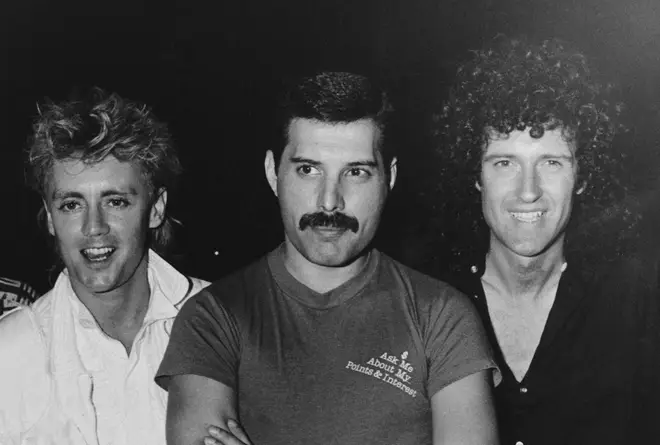
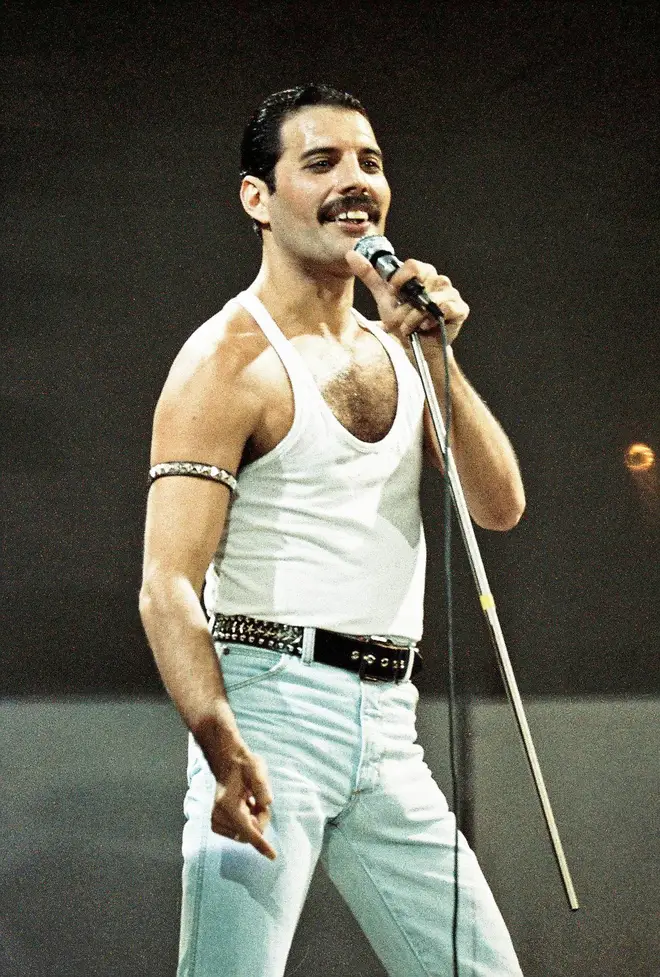

Virtual Coffee Break with Queen's Brian May - the full interview
A good friend of the singer, Peter lived with Freddie in his beloved Kensington home, Garden Lodge, alongside his six cats and long-term partner Jim Hutton, for many years before the house was left to his ex-girlfriend, Mary Austin, after the star's death in 1991.
"Freddie’s Garden Lodge generally had a quiet atmosphere," he recalls: "It was his home, so while he had quite a few wonderful parties for anything up to 200 people, it was a place he felt secure in and a place where he didn’t have to guard anything he said or did.
"He could get up in the morning and put on a mismatching tracksuit, he could be silent if he wanted to, or come downstairs from his bedroom, full of life. Freddie loved laughing, so was almost always with people who could make him laugh."
"While Freddie was alive, it was the warmest, most welcoming home that I could wish for. It was decorated most beautifully, it was filled with great furniture and as Freddie said, it wasn’t a museum; it was a house to be lived in and enjoyed."
However, the memories of Garden Lodge were very much intertwined with the presence of Freddie, with Peter recalling that the atmosphere in the house changed after the star's death.
"For me, the minute Freddie passed away, it became just bricks and mortar, it lost the warm glow that Freddie imbued into it," he says.
Reminiscing on Freddie's illness, Peter gives incredible insight into the star's feelings towards AIDS before he was diagnosed with the disease, and that Freddie had naturally hoped it would never happen to him.
"Freddie knew about the HIV/AIDS virus appearing around the world, and knew of friends dying from the disease, so obviously that played on his mind.
"He might have thought he was infected, but again, like many of us, he put it to the back of his mind, thinking ‘it won’t happen to me’. You must remember in those days it really was a death sentence, it still is today, but now the end can be put off.
"I think by the beginning of 1987 Freddie had a good idea he was ill, but still put off the confirmation for as long as possible," Peter says.


Adam Lambert: 'I learned a lot from Freddie Mercury'
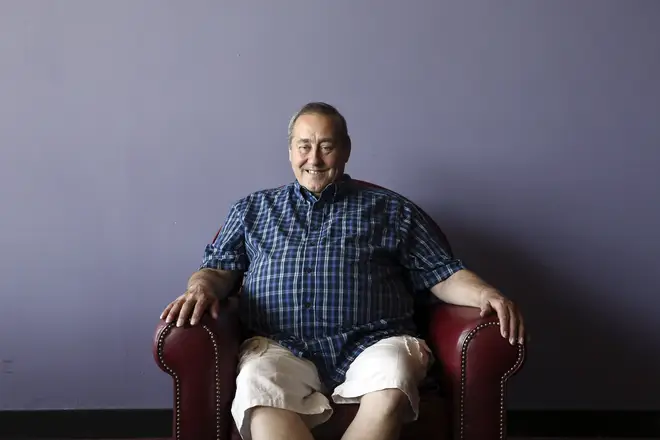
It was Freddie's ex-girlfriend and lifelong confidante, Mary Austin, who eventually made the singer to speak to the doctor that diagnosed him, in late April 1987.
"Freddie had a biopsy taken on a mark in his hand," Peter recalls. "Freddie’s doctor tried to call Freddie, who just didn’t want to take the call.
"Eventually the doctor called Mary and told her he had to speak to Freddie urgently, so Mary then had to persuade Freddie to speak to his doctor.
"I’m sure Freddie had an idea what the doctor was going to say, so didn’t want to hear the diagnosis," he remembers.
Peter reflects that as Freddie's illness took hold, the singer knew when his time was coming to an end, and confirms that the singer's famous public statement confirming his AIDS diagnosis on November 22 - and his subsequent death within 24 hours of the announcement - were purely an extraordinary coincidence.
"There was a plan to make the announcement before Freddie died, but that was as far as it went," he says.
"After Freddie came back from Switzerland on the 10th November 1991 and made his decision to stop his medication, it obviously passed through his mind to make the statement.
"He made all his arrangements...I think he just felt and knew it was his time," he says.
"Freddie and [Queen's manager] Jim Beach had talked about this for quite a while, but now it was time to make the real statement.
"Jim had to go to USA and basically they found a time to complete it before his departure. The statement was released to the world at 20.00 on Friday 22nd November," Peter recalls.
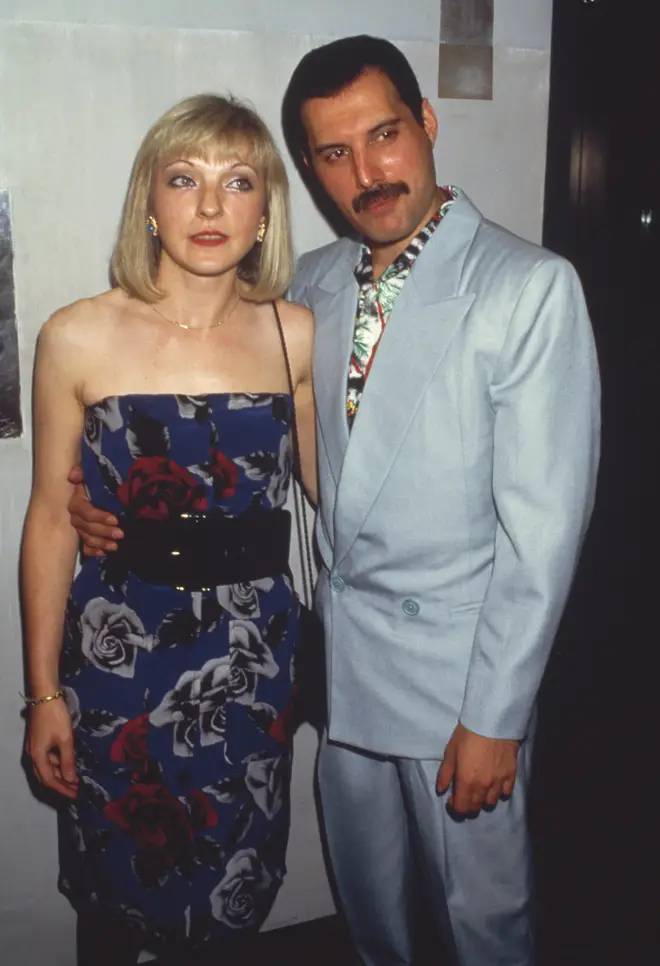
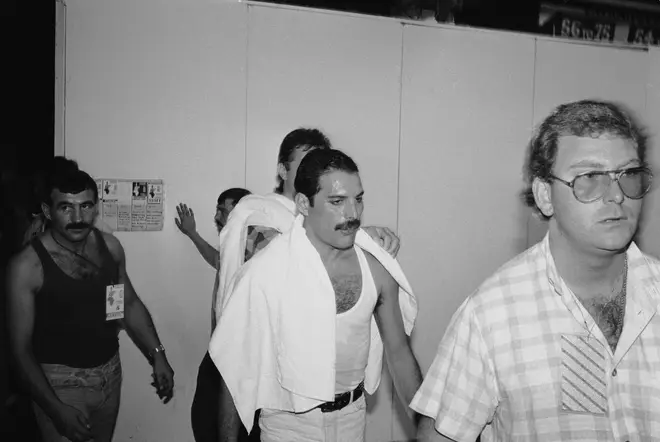
!["He had some wonderful friends whose company he enjoyed...but...he had his serious side as well, [he] worked hard and donated large amounts of his hard earned money to various charities," Peter says of Freddie Mercury.](https://imgs.smoothradio.com/images/74896?crop=16_9&width=660&relax=1&format=webp&signature=d5KS152K7W5sdL-8XhwGbPsOeRg=)
On November 24, 1991 Freddie Mercury passed away at his Kensington home, Garden Lodge, aged 45 from bronchial pneumonia due to AIDS-related complications.
"There was no indication at that time that Freddie would slip away so quickly," Peter says.
"We all knew it could not be too long, but Freddie’s doctor had said that he could be with us for quite a few days longer. I tend to feel that Freddie had decided he had had enough and it was time to go under his own terms.
"I believe he was at peace with himself. Freddie decided to stop his medication on his own terms. He knew the consequences of his actions and had the time then to talk with friends and family and say his goodbyes."
"No-one knew how much time he had left on the 10th November, but he must have understood his body and what it was feeling as the days passed."
In the days leading up to his death, Peter recalls Freddie's last days and the singer's request for one last look at his beloved Kensington home.
"Freddie was downstairs in Garden Lodge on the 20th November, as he wanted to see some of his artworks for one last time," he says.
"Terry [Freddie's bodyguard and chauffeur] carried him down the stairs, but he walked around the sitting room and Japanese room, with one of us supporting him.
"He commented on how and when he had acquired a few of the pieces [in his home]. Of course, there was a quiet atmosphere in the house during those last days, but Freddie remained the Freddie we knew until the end."
Whilst Freddie's persona was very public throughout his life, Peter reminisces that in death the star has been given the privacy he often craved while alive.
"As far as I know, there is one person who knows the precise location of Freddie’s ashes, and that is how he wanted it to be," explains Peter.
"His funeral was kept as low key as possible for a world superstar. It was kept to some of his close friends and family and the family outnumbered the friends by four to one.
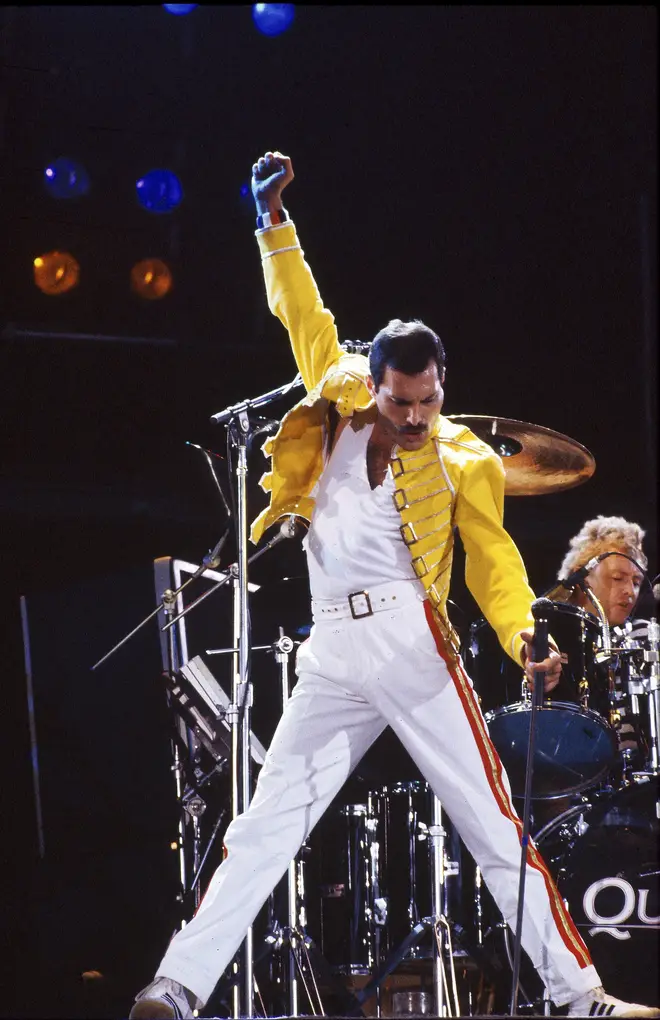
"Freddie never spoke about his funeral at all while he was alive. As he said in an interview, he didn’t really care what happened after he died," says Peter, referring to the famous video of the Queen frontman joking his own death.
Freddie, as Peter remembers him, was as a multi-layered and caring character with great depth and personality both on and off stage.
"He had some wonderful friends whose company he enjoyed...but...he had his serious side as well, [he] worked hard and donated large amounts of his hard-earned money to various charities," he says.
"I believe he would never want to be remembered as a mere mortal," Peter recalls.
"He said to Jim Beach; 'You can do what you like with my legacy, just never make me boring.'"
When asked by a fan what Peter's most treasured memory of Freddie Mercury is, the star's long-term friend gives a surprising - and moving - answer:
"The moments that always stood out for me were when he was at home laughing," Peter says.
"I know this sounds quite ordinary, but whenever you see Freddie smiling or laughing during an interview, he always uses his top lip to cover his teeth, or else he brings up his hand to cover his mouth. The reason for this was that he hated his teeth and always tried to cover them up.
"When he was at home he wasn’t self-conscious surrounded by friends, and he would just throw his head back and laugh out loud with his mouth wide open. Those were the times when the warm, funny and relaxed man was able to appear, without having to be wary of strangers seeing him without the Freddie Mercury – the Rock Star persona."
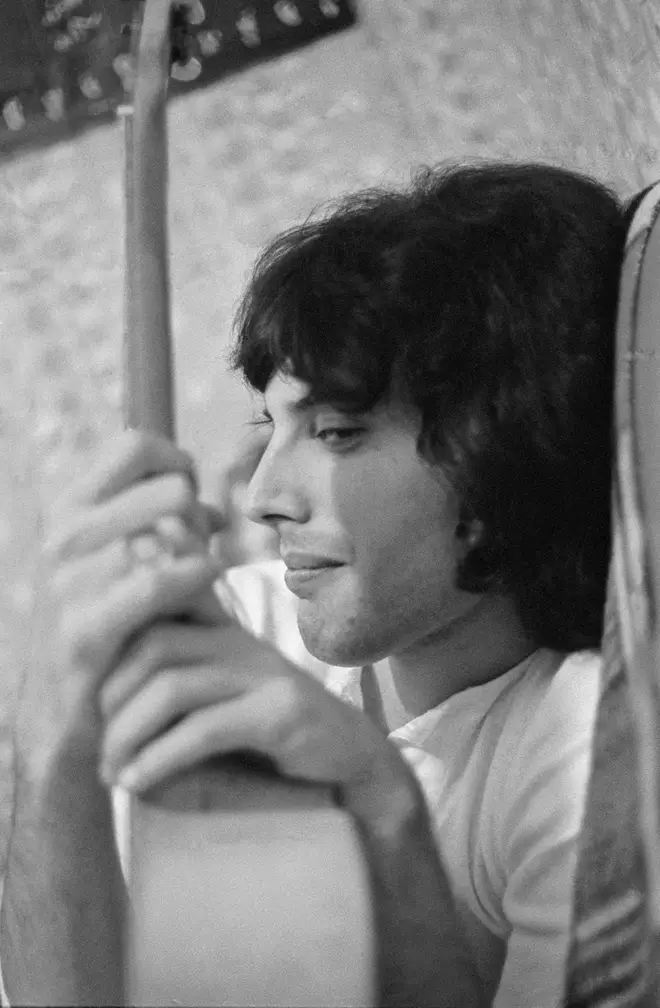

Freddie Mercury lookalike entertains crowd at Paul McCartney concert in Chile
Addressing the unusual move to reveal so many insights and secrets into his close friend's private life and death, Peter Freestone explains his motives, saying: " [Quite a number of people] state that Freddie always guarded his privacy while he was alive, and now here I am giving away everything that Freddie never talked about," he acknowledges.
"It is true, during his lifetime Freddie wanted his privacy and kept his private life to himself and a close group of friends. He also knew and spoke about that when he was gone, people would think and say many things that weren’t true. He said then that he wouldn’t care as he wouldn’t be here.
"He isn’t here in person, but the person so many people loved and admired for his music and presence is still here," Peter states, adding: "Many ill-founded rumours appear all the time and I just feel it is better that the truth is there for everyone, so that they can then make up their own minds...and get to know the real Freddie Mercury."
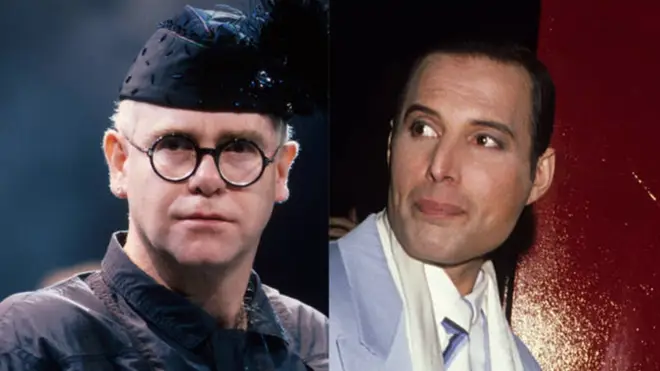
Freddie Mercury's good friend Sir Elton John opened up about the Queen frontman's courageous battle with the disease that killed him in 1991. "[During the] weeks after the funeral, I was still grieving," he recalls. "On Christmas Day, I learnt that Freddie had left me one final testament to his selflessness.
"I was moping about when a friend showed up at my door and handed me something wrapped in a pillowcase. I opened it up, and inside was a painting by one of my favourite artists, the British painter Henry Scott Tuke. And there was a note on the front from Freddie..."